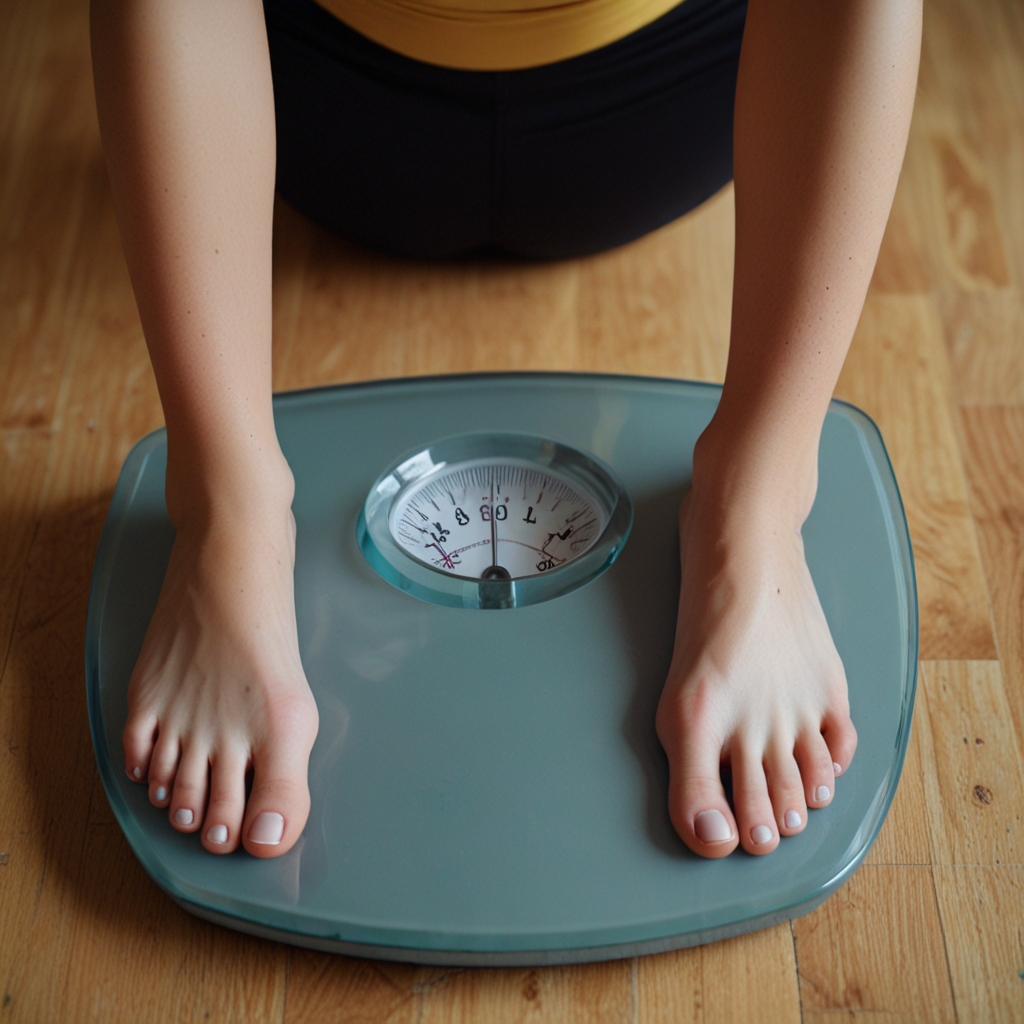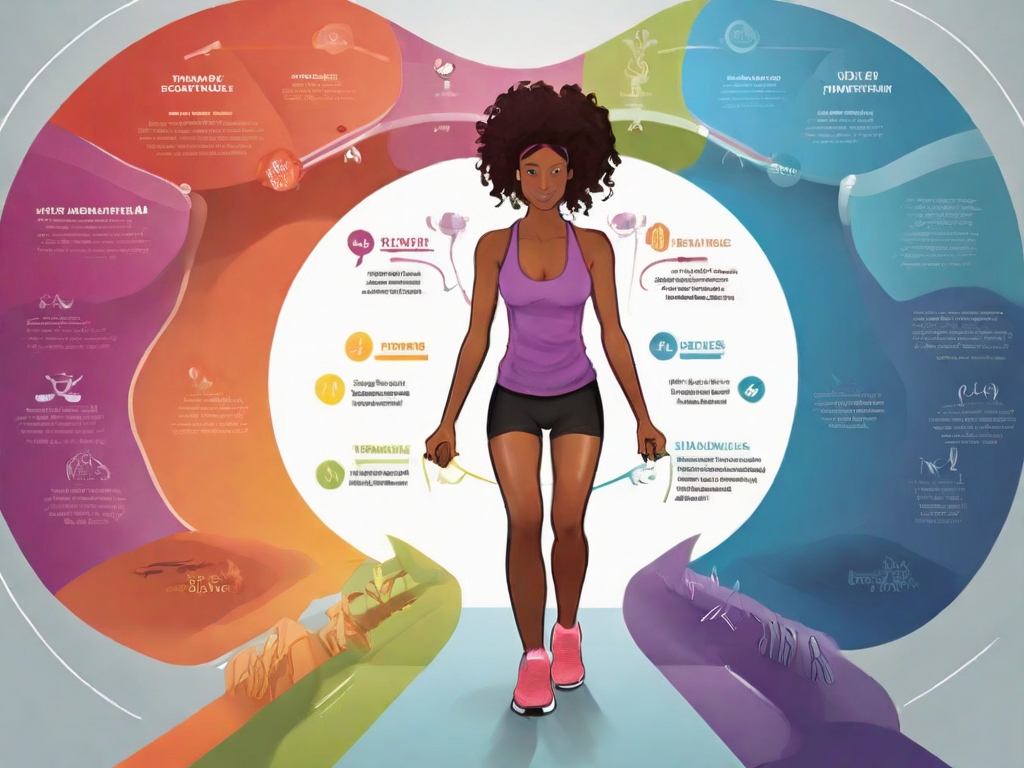Losing weight is a journey that many embark on but few understand completely. With a myriad of myths and misconceptions floating around, it’s easy to get lost in a sea of misinformation. Understanding the hidden truths about losing weight can empower you to make informed decisions and set you on the path to success.
The Basics of Weight Loss

What Does Weight Loss Really Mean?
At its core, weight loss is the process of reducing body mass, typically through a combination of diet, exercise, and lifestyle changes. It involves burning more calories than you consume, leading to a deficit that causes the body to use stored fat for energy.
The Role of Calories
Calories are the units of energy provided by food. To lose weight, you need to create a calorie deficit, which means consuming fewer calories than your body needs to maintain its current weight. This can be achieved by eating less, exercising more, or ideally, a combination of both.
Common Weight Loss Myths Debunked
Myth 1: All Calories Are Equal
Not all calories are created equal. The source of your calories can significantly impact your weight loss journey. For example, 100 calories from a sugary snack won’t have the same effect on your body as 100 calories from a nutrient-dense salad.

Myth 2: You Can Lose Weight Fast and Keep It Off
Rapid weight loss often leads to equally rapid weight regain. Sustainable weight loss is a gradual process. The key is to make long-term lifestyle changes rather than seeking quick fixes.

Myth 3: Carbs Are the Enemy
Carbohydrates are often unfairly demonized. While it’s true that refined carbs can contribute to weight gain, complex carbs found in whole grains, fruits, and vegetables are essential for energy and overall health.
The Science Behind Weight Loss
How Metabolism Affects Weight Loss
Metabolism is the process by which your body converts what you eat and drink into energy. A faster metabolism means your body burns calories more quickly. Factors like age, sex, muscle mass, and genetics influence your metabolic rate.
The Role of Hormones
Hormones play a significant role in weight regulation. Insulin, cortisol, leptin, and ghrelin are just a few hormones that can affect hunger, fat storage, and energy levels. Balancing these hormones through diet, exercise, and stress management is crucial for weight loss.
Diet and Nutrition
Importance of a Balanced Diet
A balanced diet is essential for weight loss and overall health. It should include a variety of nutrients from different food groups: proteins, fats, carbohydrates, vitamins, and minerals. Eating a wide range of foods ensures you get all the nutrients your body needs.
Fad Diets vs. Sustainable Eating
Fad diets often promise quick results but are usually restrictive and hard to maintain. Sustainable eating involves making healthy food choices that you can stick with long-term. It’s about finding a balance that works for you and fits into your lifestyle.

Exercise and Weight Loss
Types of Exercise for Weight Loss
Both cardio and strength training are important for weight loss. Cardio exercises like running, cycling and swimming help burn calories, while strength training builds muscle, which can boost your metabolism.
How Much Exercise Is Needed?
The amount of exercise needed varies from person to person. Generally, aiming for at least 150 minutes of moderate aerobic activity or 75 minutes of vigorous activity per week, along with strength training exercises on two or more days a week, is recommended.
The Psychological Aspect of Weight Loss
The Importance of Mindset
A positive mindset is crucial for weight loss success. Believing in your ability to change and staying motivated through setbacks can make a big difference. Visualizing your goals and celebrating small victories along the way can help keep you on track.
Dealing with Emotional Eating
Emotional eating is a common obstacle. Stress, boredom, and other emotions can trigger overeating. Developing strategies to manage your emotions without turning to food is essential. This might include activities like exercise, journaling, or talking to a friend.

Realistic Goal Setting
Setting Achievable Weight Loss Goals
Setting realistic and achievable goals is key to maintaining motivation. Rather than aiming to lose a large amount of weight quickly, focus on smaller, manageable goals. For example, aiming to lose 1-2 pounds per week is both realistic and healthy.
The Importance of Patience
Patience is a virtue, especially when it comes to weight loss. It’s a slow process, and it’s important to stay patient and persistent. Remember, lasting changes take time.
The Role of Sleep in Weight Loss
How Sleep Affects Metabolism
Sleep plays a critical role in weight management. Lack of sleep can disrupt hormones that regulate appetite and metabolism, making it harder to lose weight. Ensuring you get enough quality sleep is essential for your weight loss
Tips for Better Sleep
To improve your sleep, establish a regular sleep schedule, create a relaxing bedtime routine, and ensure your sleep environment is comfortable. Limiting screen time before bed and avoiding caffeine late in the day can also help.

Hydration and Weight Loss
Why Drinking Water Is Crucial
Water is vital for many bodily functions, including metabolism. Drinking enough water can help you feel full, reducing the likelihood of overeating. It also aids in digestion and can boost your metabolic rate.
How Much Water Should You Drink?
A general guideline is to drink at least 8 cups (64 ounces) of water a day, but individual needs can vary. Factors like activity level, climate, and overall health can affect how much water you need.
The Impact of Stress on Weight Loss

How Stress Influences Weight Gain
Chronic stress can lead to weight gain by increasing the production of cortisol, a hormone that promotes fat storage, particularly around the abdomen. Stress can also lead to emotional eating and poor food choices.
Stress Management Techniques
Effective stress management is crucial for weight loss. Techniques like exercise, meditation, deep breathing, and hobbies can help reduce stress levels. Finding what works for you and incorporating it into your daily routine is essential.
Supplements and Weight Loss
Do Weight Loss Supplements Work?
While some weight loss supplements claim to boost metabolism or burn fat, their effectiveness is often questionable. It’s important to approach supplements with caution and consult a healthcare professional before taking them.
Natural Supplements to Consider
Some natural supplements, like green tea extract, fiber supplements, and protein powders, can support weight loss efforts. However, they should complement a healthy diet and exercise routine, not replace them.
Monitoring Your Progress
The Best Ways to Track Weight Loss
Tracking your weight loss progress can help keep you motivated. Methods include regular weigh-ins, taking body measurements, and keeping a food and exercise diary. It’s important to focus on overall trends rather than day-to-day fluctuations.
The Importance of Non-Scale Victories
Non-scale victories, like improved energy levels, better sleep, and clothes fitting more comfortably, are important indicators of progress. Celebrating these victories can help maintain motivation and a positive outlook.

Maintaining Weight Loss
Strategies for Keeping the Weight Off
Maintaining weight loss requires ongoing effort. Strategies include continuing with healthy eating habits, regular physical activity, and monitoring your weight regularly. It’s about making sustainable lifestyle changes rather than following a temporary diet.
The Importance of Lifestyle Changes
Permanent lifestyle changes are crucial for long-term weight management. This includes developing healthy eating habits, staying active, managing stress, and getting enough sleep. It’s about creating a balanced and healthy lifestyle that you can maintain.
Conclusion
Losing weight is a multifaceted journey that involves much more than just cutting calories and exercising. Understanding the hidden truths about weight loss, such as the importance of metabolism, hormones, sleep, and stress, can help you achieve your goals more effectively. By setting realistic goals, maintaining a positive mindset, and making sustainable lifestyle changes, you can not only lose weight but also keep it off for good.
FAQs
What is the most effective way to lose weight?
The most effective way to lose weight is through a combination of a balanced diet, regular exercise, and healthy lifestyle changes. It’s important to create a calorie deficit by eating fewer calories than you burn and to make sustainable changes that you can maintain long-term.
How long does it take to see results?
The time it takes to see results varies from person to person. Generally, you may start noticing changes within a few weeks, but significant weight loss can take several months. Patience and consistency are key.
Can I lose weight without exercising?
While it is possible to lose weight without exercising by focusing on diet alone, incorporating physical activity can enhance weight loss and improve overall health. Exercise helps burn calories, build muscle, and boost metabolism.
Are there any foods that burn fat?
No single food can burn fat on its own, but certain foods can boost metabolism and support weight loss efforts. These include high-protein foods, whole grains, fruits, vegetables, and foods rich in fiber.
How do I stay motivated during my weight loss journey?
Staying motivated can be challenging. Setting realistic goals, tracking your progress, celebrating non-scale victories, and seeking support from friends, family, or a weight loss community can help keep you motivated.

The best part of The Smoothie Diet is that you can use it for as long as you need, to lose as much weight as you want Click here



